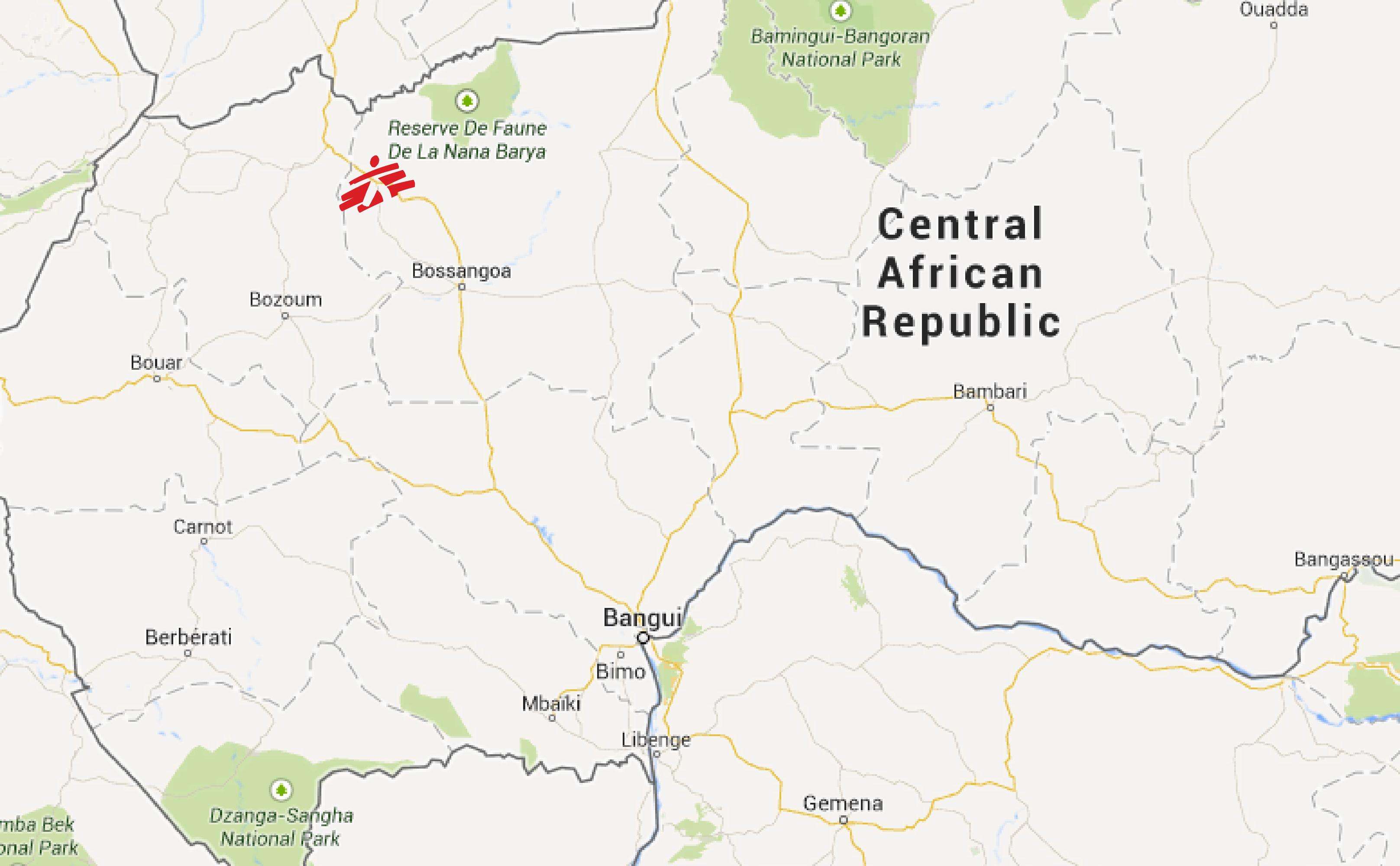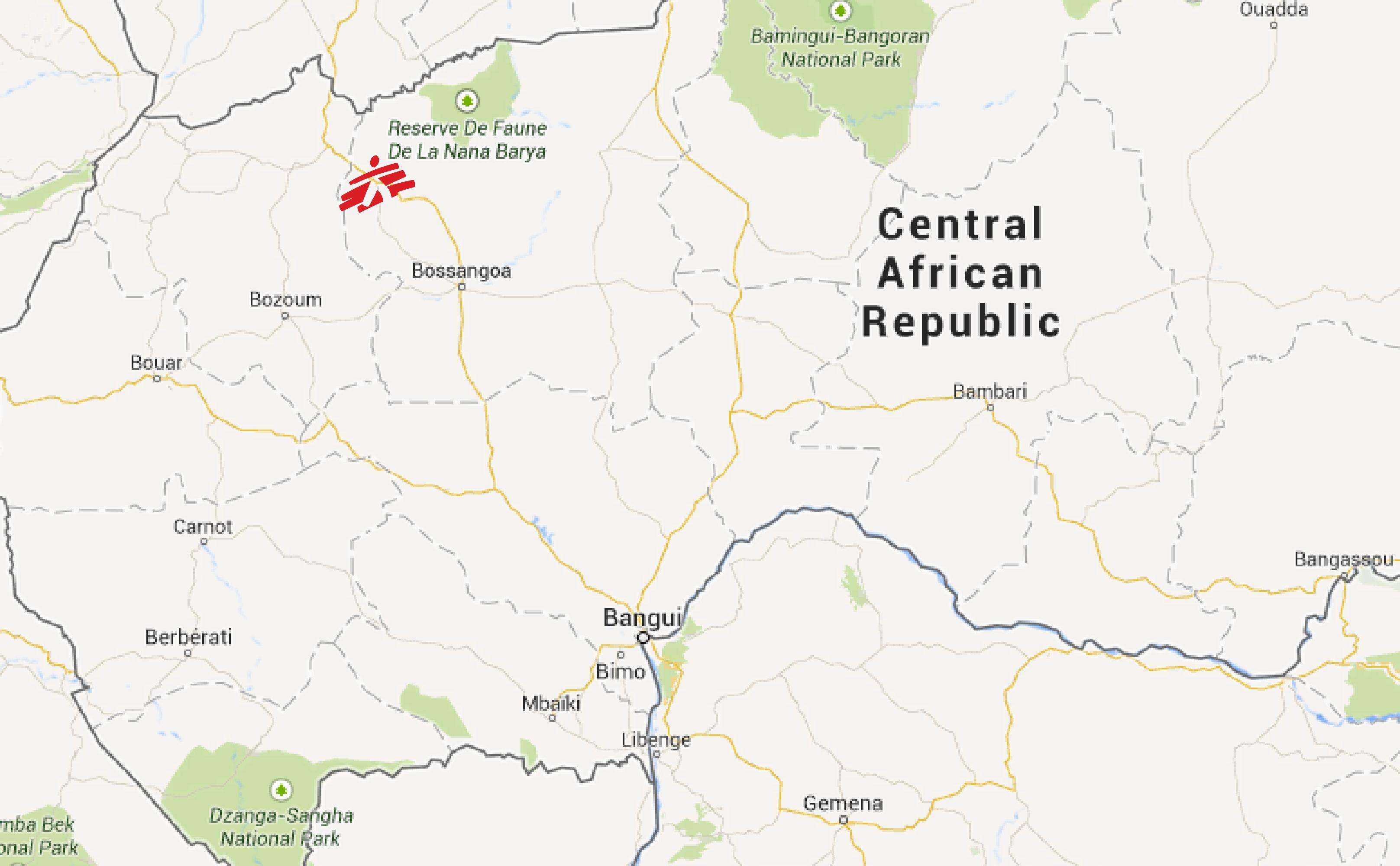Nearly 7,000 people fled into the bush after fighting erupted in the northern Central African Republic town of Boguila on the night of April 11, 2014. Those who remained took shelter overnight at the hospital where Doctors Without Borders/Médecins Sans Frontières (MSF) works.
On Friday, April 11, fighting broke out between international armed forces and local armed groups after a convoy accompanied by the African Union-led support mission for CAR, known by the acronym MISCA, passed through Boguila. The MSF team working in Boguila hospital heard a large explosion and gunfire, and then saw people fleeing the town.
“We witnessed the majority of the population fleeing in panic to the bush," says Stefano Argenziano, MSF Head of Mission in CAR. "We opened our compound to some 30 to 40 women and children who spent the night with us.”
The international forces were escorting a convoy of around 20 trucks that were evacuating the last remaining Muslim citizens from Bossangoa—about 540 people—to Gore in southern Chad. MSF teams received three wounded in Boguila and Paoua hospitals following the clashes, which continued on Saturday, April 12.
“We are worried that the gun battle may have resulted in more people being injured,” added Argenziano. “For the moment no one can approach the battle area to evacuate potential wounded.”
Since the coup in March 2013, Boguila has been unstable, with escalating tension and violence. In August 2013, a peak of fighting provoked a massive population displacement in the area. In December 2013, Muslims fleeing violence in Nana Bakassa sought refuge with host families in Boguila before moving further north.
“The recurrent clashes between armed groups force people to flee into the bush on a regular basis, thus exacerbating their vulnerability and reducing their access to medical care," said Argenziano. "With the approaching rainy season, the displaced will be particularly exposed to malaria, which remains the first causes of mortality in the country.”
MSF has managed a 115-bed hospital in Boguila since 2006, providing primary and secondary health care for a regional population of some 45,000 people. MSF teams also support 10 health posts around Boguila, providing primary health care—mainly treating malaria and referring severe cases to the hospital. Each month, between 9,000 and 13,000 general consultations are provided and between 5,000 to 10,000 people are treated for malaria.
MSF has been working in CAR since 1997. Currently, MSF has more than 300 international staff and more than 2,000 Central African staff working in the country. MSF runs seven regular projects (in Batangafo, Carnot, Kabo, Ndélé, Paoua, Bria, and Zémio) and eight emergency projects (in Bangui, Berbérati, Bouar, Boguila, Bossangoa, Bangassou, and Bocaranga, as well as mobile clinics in the northwest of the country). MSF teams are also providing assistance to Central African refugees who have fled to neighboring Chad, Cameroon, and Democratic Republic of Congo.





